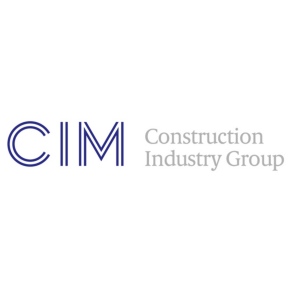
GUEST ARTICLE: Ten ways marketers can address diversity in construction
Closing the construction skills gap and attracting a more diverse and inclusive workforce must start in the marketing department, says the Chartered Institute of Marketing (CIM).
Ahead of a major industry debate organised by the Chartered Institute of Marketing on 16 May, CIM’s Construction Industry Group (CIMCIG) has released ten practical steps marketers can take to reshape the sector’s out of date image and boost the numbers of young people, women, and minority groups working in construction.
Headlined by Mark Farmer, CEO of Cast Consultancy, Improving the Image of Construction, will take place at London’s Palace of Westminster, House of Lords, and will look to address the challenges in attracting new talent to the industry, having workforce diversity, the ability to deliver cost-effective innovations and busting the many misconceptions of the sector.
Mike Lomax, chair of the CIMCIG, commented: “The demographics of our industry are such that we are now losing more people each year than we are gaining. Too many people have the impression that working in the sector simply means getting your hands dirty on site, which of course is untrue.
Construction has something for everyone, and it’s our job as marketers to dispel the myths surrounding our industry and attract the best and brightest talent the next generation has to offer.
“These tips are designed to help marketing teams across the sector do just that, and ultimately deliver better results and become more attractive to top talent.”
1. Question the culture
If current policies are failing to address the needs of employees, start by asking staff what they want, what they like about the company and what they feel could be better. Feed your findings back to decision makers so they can adapt and rework existing policies.
That said, there’s every chance your business has already implemented policies designed to attract a wide range of candidates. Parental leave, flexible working hours, health care and tailoring the recruitment process to embrace different needs and situations; these are all fundamental to an inclusive culture and should be promoted.
2. Go back to school
Primary school age may seem a little early to be encouraging people to consider their future career but impress a nine-year old with a visit to a factory or a construction site full of activity and cool equipment, and you have introduced an idea of a job that focuses on practical skills.
There has never been a better time to do this. In March 2019 Education secretary Damian Hinds revealed that his department is working with firms like oil company BP and financial services firm UBS to bring “career-related learning” to all primary schools2.
3. Go back to college
If there is a careers event at a local college, make sure your business has a presence there. The benefits of career paths such as apprenticeships and vocational qualifications are not championed nearly as much as they should be, so if your business offers them, make sure people know about it.
Anna Hern, CIMCIG committee member, commented: “I was recently talking to a young man, who was a university candidate but who decided instead to do an electrical apprenticeship.
“Having completed that he is now, aged 22, being offered jobs at over £30k with no student loan to pay off and is in a career with great potential.”
Inspiring examples like this could be enough to make a sixth form student re-think their career path and open their eyes to the earning potential within construction.
Anna added: “As a sector we need to do more to shout about such career paths, and we have a great opportunity now, as school leavers are beginning to realise that an expensive university degree may not in the end guarantee them the career they are after.”
4. Evaluate marketing materials
Marketing materials produced in-house have an important role to play in controlling how individuals and job roles are discussed, promoted and perceived. It could be that yours need a refresh. Consider how the material you create to promote your company represents a diverse culture.
Anna said: “Some of it is very simple – ensuring site shots or case studies include role models who are something other than middle aged white men, for example. It just takes a minute to stop, consider that picture or that story and think about whether the people who are centre stage could be different.”
5. Be reactive
Being proactive is important, but it’s equally important to react when necessary. If you see the industry being represented poorly in the media, don’t be afraid to challenge it.
Anna’s advice is to contact any journalist whose story you feel to be inaccurate and engage directly with the source of the story as often as possible.
6. Look out for great case studies
One real, human-interest story about someone working in the industry will have more impact than a dozen corporate brochures, and marketing departments are ideally placed to find and tell those stories.
Deborah Rowe, CIMCIG secretary, said: “Marketing is at the heart of everything so it’s in the best position to find examples of where companies are doing things well – not just from the corporate responsibility side but from the personal side that matters to people when they are choosing a career or the next role.”
Promote and talk about rising stars in your business, interview apprentices and people across different roles on their success story.
This will highlight the training and development opportunities and the support available to both current and prospective staff.
Jane Evans from MRA Marketing adds that this will also ‘remove misconceptions and dilute stereotypical views about our industry and the roles that exist within it – whether it’s skilled labour or otherwise’.
7. Keep up-to-date with technology
Like all industries, construction is adopting digital tools at a fast pace. However, digitisation does not only apply to the design and procurement processes – as marketers you need to keep up-to-date with the latest developments.
Anna Hern said: “The growing impact of online and social media as a means of communicating directly with end user audiences cannot be ignored and marketers need to ensure they are well informed on how their customers are accessing information, where the key influencers are and how online resources can be used to measure and evaluate marketing campaigns.”
8. Professional development
Identify gaps in your own skillset and take steps to address them. Whether it’s attending networking events, completing a social media marketing course or simply doing some further reading, do not underestimate the importance of professional development.
9. Face your fears
Talking about diversity issues can be daunting. Yourself or members of your team may feel unsure of how to talk about people who live with a disability, or how to talk to about people from different ethnicities, for fear of causing offence.
Unconscious bias is often the roots of this discomfort, but as it is also the root of the stereotypes you are trying to combat, you need to address it head on.
Focus on the outcomes of your campaigns. If the intention is to attract more people from minority groups, educating yourself, your team and the business on diversity issues is a vital step.
10. Get inspired
Look at what other companies are doing well. Do similar businesses have greater diversity in their workforce? Research their marketing methods and see what works for them. This will inform your own strategy and help you develop best practices.
Latest news

18th April 2024
Abloy UK showcases new digital portfolio at The Security Event 2024
Abloy UK is set to unveil its latest line-up of access control systems at The Security Event 2024, welcoming guests to explore its cutting-edge electromechanical and digital solutions on stand 5/F50.
Posted in Access Control & Door Entry Systems, Architectural Ironmongery, Articles, Building Industry Events, Building Industry News, Building Products & Structures, Building Services, Doors, Exhibitions and Conferences, Facility Management & Building Services, Health & Safety, Information Technology, Retrofit & Renovation, Security and Fire Protection
18th April 2024
Strand is a Failsafe Choice for Emergency Exit and Panic Hardware
In times of emergency, you’re in safe hands with Strand Hardware. Although there are many considerations for building specification, few decisions can be as critical as selecting the right emergency exit/panic hardware.
Posted in Access Control & Door Entry Systems, Architectural Ironmongery, Articles, Building Industry News, Building Products & Structures, Building Services, Doors, Facility Management & Building Services, Health & Safety, Restoration & Refurbishment, Retrofit & Renovation, Security and Fire Protection
18th April 2024
MRA appoints Callum Budd as Research Projects Director
MRA Research, the research agency focused solely on the construction sector, welcomes Callum Budd as its new Research Projects Director.
Posted in Articles, Building Industry News, Information Technology, news, Recruitment, Research & Materials Testing
16th April 2024
Mitsubishi Electric set to host CIBSE Journal webinar
Mitsubishi Electric will host a CIBSE Journal webinar on Wednesday 24th April 2024 at 1pm to discuss the legislation and initiatives driving changes in the way we will need to heat, cool and ventilate large commercial buildings to reach net zero emissions in the UK.
Posted in Air Conditioning, Articles, Building Industry Events, Building Industry News, Building Products & Structures, Building Regulations & Accreditations, Building Services, Facility Management & Building Services, Heating Systems, Controls and Management, Heating, Ventilation and Air Conditioning - HVAC, Information Technology, Pipes & Fittings, Plumbing, Seminars, Sustainability & Energy Efficiency, Training
 Sign up:
Sign up: